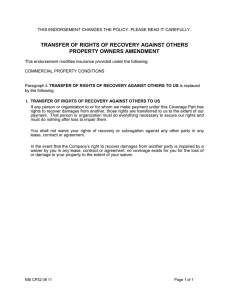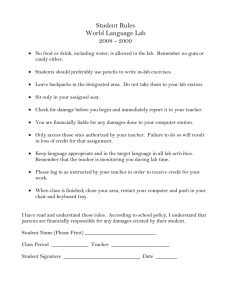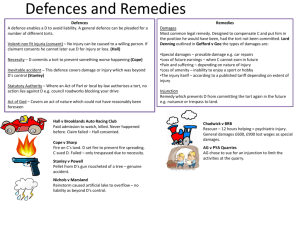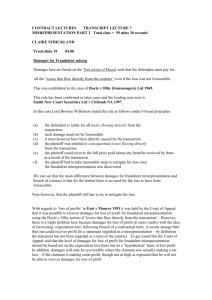Understanding Limitations on Recovery of Damages, Including the
advertisement
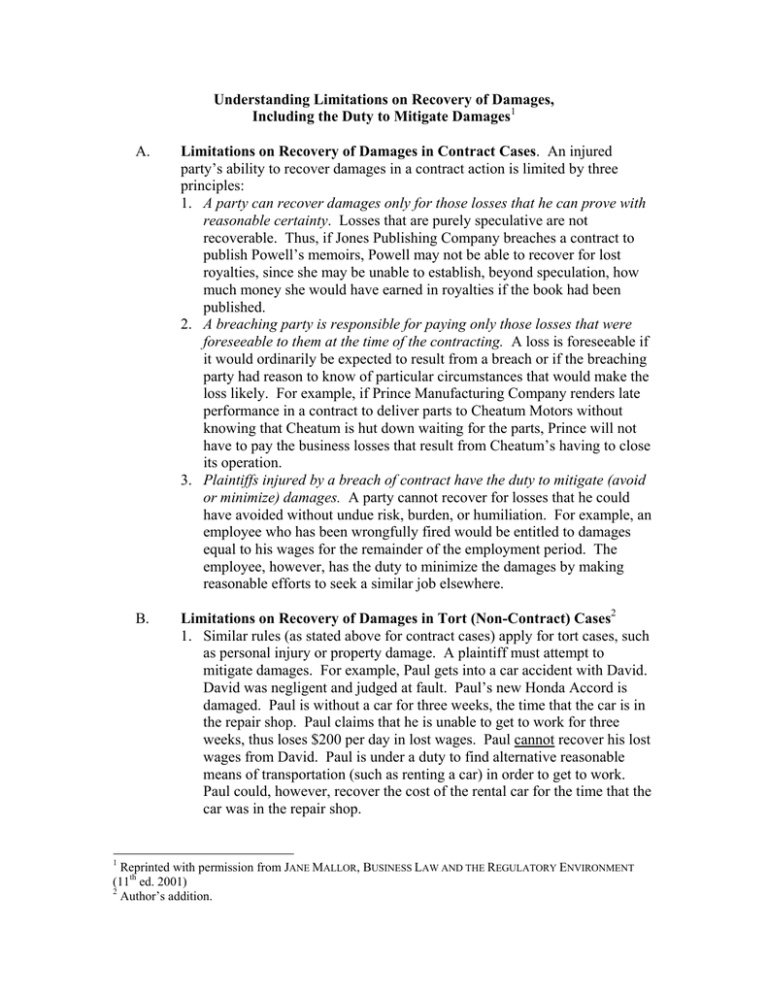
Understanding Limitations on Recovery of Damages, Including the Duty to Mitigate Damages1 1 A. Limitations on Recovery of Damages in Contract Cases. An injured party’s ability to recover damages in a contract action is limited by three principles: 1. A party can recover damages only for those losses that he can prove with reasonable certainty. Losses that are purely speculative are not recoverable. Thus, if Jones Publishing Company breaches a contract to publish Powell’s memoirs, Powell may not be able to recover for lost royalties, since she may be unable to establish, beyond speculation, how much money she would have earned in royalties if the book had been published. 2. A breaching party is responsible for paying only those losses that were foreseeable to them at the time of the contracting. A loss is foreseeable if it would ordinarily be expected to result from a breach or if the breaching party had reason to know of particular circumstances that would make the loss likely. For example, if Prince Manufacturing Company renders late performance in a contract to deliver parts to Cheatum Motors without knowing that Cheatum is hut down waiting for the parts, Prince will not have to pay the business losses that result from Cheatum’s having to close its operation. 3. Plaintiffs injured by a breach of contract have the duty to mitigate (avoid or minimize) damages. A party cannot recover for losses that he could have avoided without undue risk, burden, or humiliation. For example, an employee who has been wrongfully fired would be entitled to damages equal to his wages for the remainder of the employment period. The employee, however, has the duty to minimize the damages by making reasonable efforts to seek a similar job elsewhere. B. Limitations on Recovery of Damages in Tort (Non-Contract) Cases2 1. Similar rules (as stated above for contract cases) apply for tort cases, such as personal injury or property damage. A plaintiff must attempt to mitigate damages. For example, Paul gets into a car accident with David. David was negligent and judged at fault. Paul’s new Honda Accord is damaged. Paul is without a car for three weeks, the time that the car is in the repair shop. Paul claims that he is unable to get to work for three weeks, thus loses $200 per day in lost wages. Paul cannot recover his lost wages from David. Paul is under a duty to find alternative reasonable means of transportation (such as renting a car) in order to get to work. Paul could, however, recover the cost of the rental car for the time that the car was in the repair shop. Reprinted with permission from JANE MALLOR, BUSINESS LAW AND THE REGULATORY ENVIRONMENT (11th ed. 2001) 2 Author’s addition.
